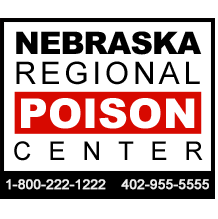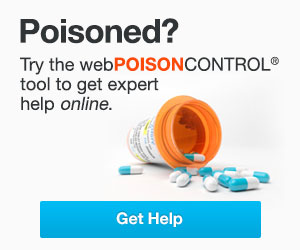Summer PSA
Summertime Poison Prevention
As the weather and seasons change so do the types of calls to the Nebraska Regional Poison Center. During the summer months, poison centers manage more calls about bites, stings, plants and pesticides than other times of the year.
Bites and Stings: Warm weather, brightly colored clothing and backyard picnics often attract flying insects such as bees and wasps. Remove the stinger with a gentle scraping motion using a credit card or fingernail. Do not squeeze or pull the stinger, or you’ll release more venom. Clean with soap and water. Apply ice compresses for 15-20 minutes at a time In addition, watch for indications of a sudden allergic reaction such as itching, wheezing, faintness, sweating, confusion or developing a rash. Contact a physician or visit the nearest emergency department at the first sign of these symptoms, which could become life threatening. Delayed reactions may occur 10-14 days after a sting. Call your physician if the person stung experiences fever, discomfort, hives, headache, or itching. For snake bites from a poisonous species such as rattlesnakes, the most important thing you can do is call 9-1-1.
Insect Repellents: Only use insect repellents that are meant to be used on the skin. Avoid over-application. The long word for DEET is N,N-diethyl-m-toluamide. Most labels will have the long chemical word listed. Use concentrations less than 20% DEET. A higher concentration does not mean that the product will work better, rather it means that it will be effective for a longer period of time. Use repellents only when outdoors and wash skin with soap and water when coming in. Picaridin is an odorless synthetic ingredient found in some bug repellents and is a safe alternative to use on children. Follow all label directions.
Hydrocarbons: This category can include gasoline, kerosene, lighter fluids and torch fuels. The hydrocarbon group is slick and oily. One of the main risks with ingestion is that it may “slip” into the lung causing a chemical pneumonia. Store all of these products in the original container and well out of reach of little hands.
Plant and Mushroom Poisonings: The initial hazard is choking. Remove any piece from the mouth, but don’t induce vomiting. Teach children never to put any part of a plant, including berries, in their mouths. A tip for indoor plants is to write down the name of each plant you have on a clean stick and put it in the soil. If an ingestion should occur you will know the name of the plant. This is especially helpful if someone else is caring for the child and an ingestion occurs. Mushrooms may look very interesting and enticing to young children. There are several varieties. Often the typical yard mushroom is a stomach irritant.
The Nebraska Regional Poison Center is a free community service to the public. When you call 1-800-222-1222, you will speak immediately to a Registered Nurse or Pharmacist 24/7/365.


Leave a Reply
Want to join the discussion?Feel free to contribute!